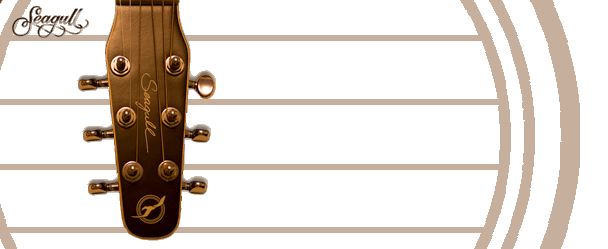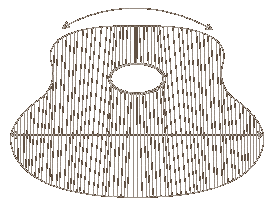The idea of applying an arch or a curve to the top is
appealing because the added strength created by
the arch makes it possible to use a thinner and more
lightly braced top. While this is true, there remains a
trade-off in applying a curve to the entire top. The
most active part of the top is the area centered on
the bridge. Applying a curve to this part of the top
restricts movement resulting in a loss of dynamic
range. On the other hand, the area of the top above
the sound hole moves minimally but is problematic
because it tends to sink if the guitar dries out even
slightly.
This tendency is also encouraged by downward
pressure from the fingerboard resting on top of
it. The solution is a top that has a compound curve.
In this design, the top is arched slightly in the area
above the sound hole and levels out in the area
around the bridge. The compound curve top produces
excellent stability in the upper part of the guitar
top and the power and projection made possible
by leaving the top flat, below the sound hole. With
the weak area above the sound hole stabilized, it is
possible to make the rest of the top even more
select a feature below



The Compund-Curve Top

